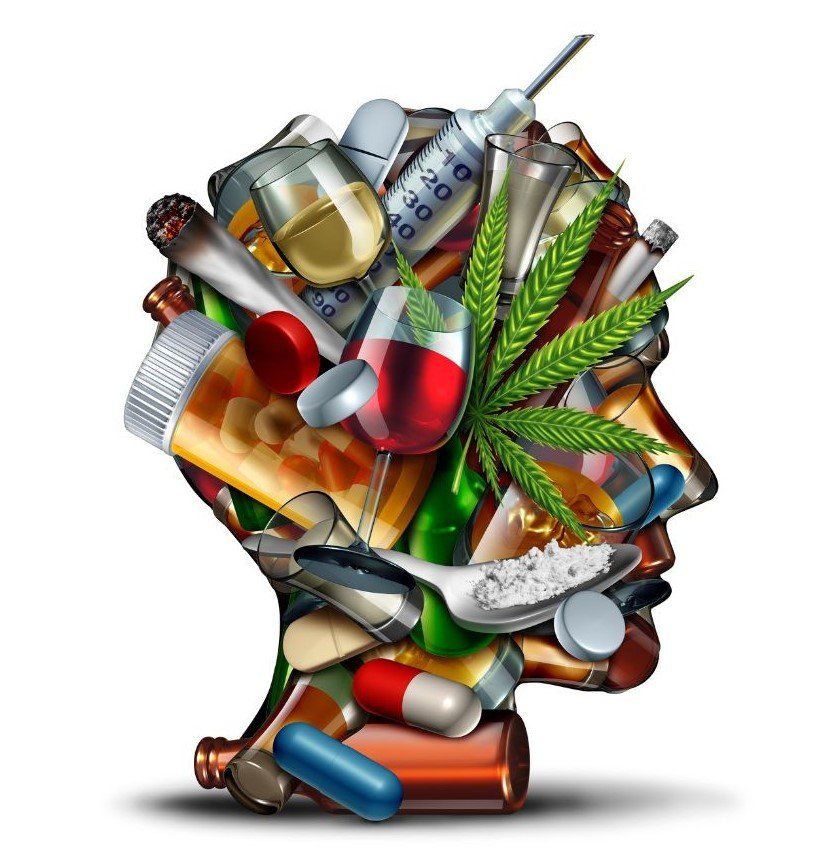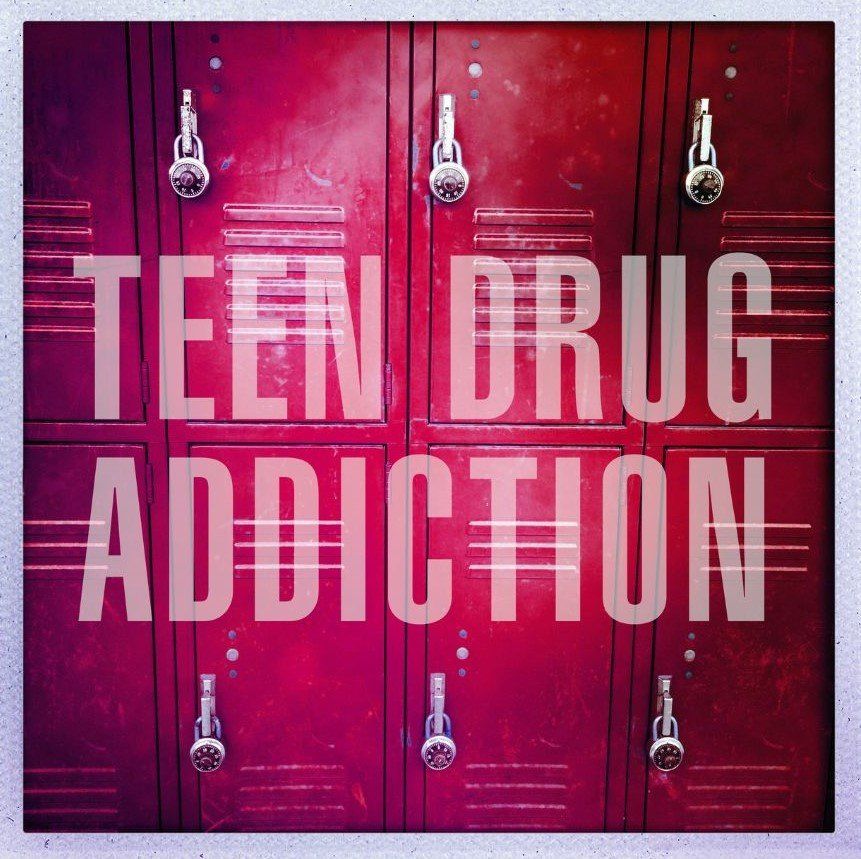Some common signs include:
- Withdrawal from friends and family
- Changes in appearance or hygiene
- Unexplained mood swings
- Loss of interest in hobbies or activities
- Difficulty meeting work or school obligations
- Financial problems
Drug addiction is a complex disease that impacts both the body and mind. It can be difficult to understand, especially for those who have never struggled with addiction themselves. In this comprehensive guide, we will break down everything you need to know about drug addiction. We will start by defining addiction and discussing why it is considered a disease. Then, we will take a look at how drug abuse generally starts, the symptoms of addiction, and the behaviors of addicts. Next, we will explore why drugs and alcohol are so addictive and discuss the short- and long-term effects of addiction. Finally, we will provide steps on how to prevent drug misuse in adolescents and teens as well as how to prevent relapse in recovering addicts.

Drug addiction is a condition that results when a person abuses drugs or alcohol to the point that the addiction interferes with their daily life. addiction is characterized by compulsive drug seeking and use, despite harmful consequences. addiction can occur in any person, of any age, race, or socioeconomic status.
Drug addiction is a persistent, relapsing brain disease that is characterized by compulsive drug seeking and use, despite harmful consequences. Drug addiction is a brain disease because the abuse of drugs leads to changes in the structure and function of the brain. These changes persist long after drug use has stopped and can lead to drug craving and drug-seeking behavior. The National Institute on Drug Abuse (NIDA) defines drug addiction as a "chronic, relapsing brain disease that is characterized by compulsive drug seeking and use, despite harmful consequences."
Drug addiction is not simply a matter of using too much of a drug; it is a complex condition that requires changes in the brain in order to continue. Contributing factors to drug addiction include genetic, psychological, social, and environmental factors. Understanding these factors can help to prevent drug addiction before it starts.
Substance abuse disorder is a diagnosable condition that refers to excessive use of harmful substances. These substances can include alcohol, drugs, and tobacco. People with substance abuse disorders often feel that they cannot function without the substance and may develop tolerance to it, meaning that they need to use increasingly larger amounts to experience the desired effects. Substance abuse disorder can lead to serious health problems, including liver damage, heart disease, and cancer. It can also cause problems at work, in school, and relationships.
Treatment for substance abuse disorder typically includes counseling and support groups. In some cases, medication may also be used to help people manage withdrawal symptoms and cravings. Contributing factors to substance abuse disorder include genetic, psychological, social, and environmental factors. Understanding these factors can help to prevent substance abuse disorder before it starts.
Drug addiction and substance abuse disorder are often used interchangeably, but there are important differences between the two. Drug addiction is characterized by a strong and persistent desire to use drugs, even when doing so causes negative consequences.
Substance abuse disorder, on the other hand, is defined as a pattern of harmful use that can lead to overdose, poisoning, or death. Substance abuse disorder is also associated with physical dependence, meaning that an individual has withdrawal symptoms when they try to stop using the substance.
Because substance abuse disorder is more severe, it is often treated with more intensive interventions, such as
residential treatment programs. However, both drug addiction and substance abuse disorder require professional help for individuals to recover.

There is no single answer to this question as drug abuse can start for many different reasons. For some people, it may start as a way to cope with stress or trauma. Others may turn to drugs as a way to escape from problems at home or school. Some people may start using drugs because of peer pressure, while others may be curious about what they have heard about drugs. No matter the reason, it is important to remember that drug abuse can lead to addiction and has many harmful consequences. If you or someone you know is
struggling with drug abuse, there are resources available to help.
Drug and alcohol abuse can lead to a wide range of short- and long-term effects. The exact symptoms that an individual experiences will depend on several factors, including the substance abused, the frequency and amount of use, and the individual's overall health. However, there are some common signs and symptoms that may be indicative of substance abuse. These can include changes in appearance, mood, or behavior; difficulty concentrating or memory problems; slurred speech; impaired coordination; and nodding off or falling asleep at inappropriate times. substance abuse may also lead to financial problems, legal troubles, and social isolation. If you suspect that someone you know is abusing drugs or alcohol, it is important to get them help as soon as possible. Substance abuse can be a very destructive force in a person's life, but with treatment and support, it is possible to recover and build a healthy, happy life.
The symptoms of addiction can vary depending on the substance being abused and the severity of the addiction. Some common signs include:

Some common signs include:
If you notice any of these symptoms in yourself or someone you know, it is important to seek help as soon as possible. Drug addiction can be a difficult condition to overcome, but treatment is available and recovery is possible.
Different drugs have different effects on the body, depending on how they are taken and how potent they are. Some drugs, such as alcohol, can lead to addiction and cause serious health problems including
liver disease and cancer. Other drugs, such as marijuana, may not be as addictive but can still cause problems with memory and learning. Stimulant drugs like
cocaine and methamphetamine can cause heart attacks or strokes.
Opioid drugs like heroin and
prescription painkillers can slow breathing and lead to overdose or death. It is important to be aware of the risks associated with any type of drug, even if it is legal or prescribed by a doctor.
What are the effects of stimulant drugs on the human body?
Stimulant drugs are drugs that increase activity in the brain and nervous system. They include cocaine, methamphetamine, and MDMA, among others. Stimulant drugs increase alertness, attention, and energy levels, as well as heart rate and blood pressure. In large doses, they can lead to hyperactivity, hallucinations, and paranoid delusions. Stimulant drugs also interfere with the brain's ability to regulate sleep, appetite, and mood. This can lead to sleep problems, weight loss, and irritability. High doses of stimulant drugs can also cause seizures, stroke, and heart failure. In general, stimulant drugs have several negative effects on the human body.
What are the effects of opioid drugs on the human body?
When heroin or other opioids enter the human body, they travel to the brain where they bind to opioid receptors. This binding triggers a number of chemical reactions that produce the drug's characteristic effects, including pain relief, sedation, and feelings of well-being. However, opioids also disrupt the brain's normal functioning, leading to impairments in cognition, judgment, and motor skills. In addition, opioids can slow breathing and heart rate, potentially leading to death. When taken as prescribed by a doctor, opioids can be safe and effective pain relievers. However, when misused, opioids can have dangerous consequences.
What are the effects of alcohol abuse on the human body?
The effects of alcohol on humans are many and varied. In small quantities, it acts as a stimulant, but in larger amounts, it acts as a depressant. Acute intoxication by alcoholic beverages leads to impaired motor coordination, dilated pupils, and sensorial changes. These effects are due to the depressant action of alcohol on the brain and central nervous system.
The type of drink containing alcohol plays a major role in how these effects manifest due to the concentration of alcohol contained. Alcohol, in liquor, beer, and wine, is a solution of ethanol. Concentrations of 100-proof liquor are 50% ethanol; 80-proof liquor, 40% ethanol; wine, 12-14% ethanol; beer, 3-5% ethanol. Moonshine may contain as much as 95% ethanol.
As blood alcohol increases, the progressive loss of mental faculties, including judgment and reasoning. At very high blood levels, unconsciousness and death may result from depression of the brain centers that control respiration. Alcohol is metabolized in the liver by enzymes. Ethanol is converted to acetaldehyde which is then converted to acetic acid and finally to carbon dioxide and water. About 90% of the alcohol is metabolized in this way. The remaining 10%, which is not metabolized by the liver enzymes, is eliminated by other mechanisms including breathed out (exhaled), urine, or feces.
There are many risk factors associated with drug abuse, including genetics, environment, and mental health. People who have family members with addiction are more likely to develop an addiction themselves. Those who come from chaotic or abusive homes are also at increased risk. There is no single cause of substance abuse. Rather, it is the result of a complex interplay of genetic and environmental factors.
Certain genetic risk factors have been identified that may make individuals more susceptible to developing a substance use disorder. For example, people with certain variants of the genes that regulate the neurotransmitter dopamine are more likely to abuse drugs or alcohol. Additionally, individuals with a family history of substance abuse are more likely to develop an addiction themselves. While genetic risk factors cannot be changed, knowledge of these risk factors can help to identify people who may be at a higher risk for developing a substance use disorder. With early intervention and treatment, these individuals can receive the help they need to stay sober and avoid the damaging effects of addiction.
Mental health disorders like depression and anxiety can lead to
self-medicating with drugs or alcohol, which can, in turn, lead to addiction. It is important to be aware of these risk factors so that you can seek help if you are
struggling with addiction.
The consequences of drug abuse can be both short-term and long-term. Short-term consequences include problems with memory and learning, impaired judgment, and increased risk of accidents or injuries. Long-term consequences include addiction, liver damage, heart disease, and cancer. Drug abuse can also lead to problems at work, in school, and in relationships. If you or someone you know is struggling with addiction, it is important to seek help as soon as possible.
There are many steps that parents and guardians can take to prevent drug misuse in adolescents and teens.

Some of these steps include:
If you are concerned about your child’s drug use, it is important to seek help from a professional. Addiction treatment can help your child overcome addiction and live a healthy, drug-free life.

If you or someone you know is in recovery from addiction, there are steps that you can take to prevent a relapse. There are many different triggers for substance abuse. For some people, it may be a way to cope with underlying mental health issues such as anxiety or depression. For others, it may be a way to self-medicate for physical pain. Triggers can also be environmental, such as being around people who are using drugs or being in places where drugs are easily accessible. Some people may also have a genetic predisposition to addiction, which can make them more likely to abuse substances. Recognizing your personal triggers is an important step in
preventing relapse. If you know what your triggers are, you can develop a plan to avoid them or deal with them in a healthy way.
Some of these steps include:

If you are in recovery from addiction, it is important to be aware of the risks of relapse and take steps to prevent it.
Addiction is a complex disease that can be difficult to overcome. However, with the help of friends, family, and professionals, it is possible to get the support you need to fight addiction and live a healthy life. If you have any questions about addiction or recovery, ALANA Recovery Center staff is available.
Don’t try to fight addiction alone – Reach out for help today.
Talk With a Provider Today!
Talk With a Provider Today!
Fighting addiction alone is an almost impossible task. Don't do this alone, call us today to start your road to recovery.